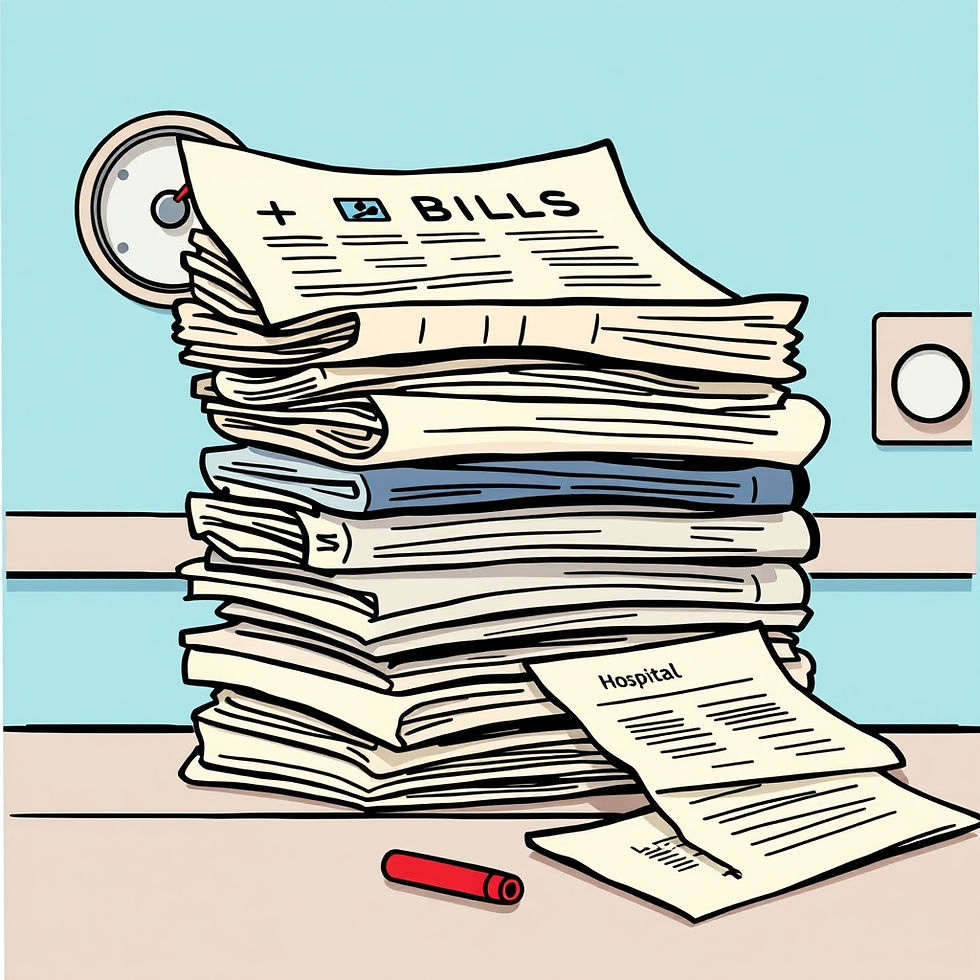Understanding Patient Concerns: Addressing Common Billing Department Inquiries
- Stanley Hastings
- Jun 11, 2025
- 3 min read

Effective communication between patients and the billing department is crucial for a positive healthcare experience. Patients often reach out to the billing department for various reasons, and understanding these concerns is essential for providing satisfactory resolutions. In this article, we explore the most common reasons a patient will call the billing department and the best ways to address each concern.
1. Billing Inquiries:
Reason: Patients may have questions about specific charges, unclear descriptions on their bills, or discrepancies in the billing statements.
Resolution: Encourage patients to review their bills carefully and call the billing department for clarification. Provide a dedicated helpline or online portal where patients can access detailed explanations of charges. If discrepancies are identified, assure patients that the billing department will investigate and rectify any errors promptly.
2. Insurance Coverage Questions:
Reason: Patients often call to understand what their insurance covers, seeking clarification on whether a particular service or procedure is included in their policy.
Resolution: Direct patients to the insurance verification team within the billing department. Ensure that staff members are well-versed in navigating insurance policies and can provide accurate information about coverage details. Offer a clear explanation of the patient's coverage, co-payments, deductibles, and any out-of-pocket expenses.
3. Payment Arrangement Requests:
Reason: Some patients may face financial challenges and seek assistance in setting up payment plans or negotiating their bills.
Resolution: Establish a compassionate and understanding approach. Have dedicated financial counselors who can assess patients' financial situations and work collaboratively to develop reasonable payment plans. Provide clear information about available financial assistance programs, discounts, or charity care options.
4. Address Change or Personal Information Updates:
Reason: Patients may call to update their contact information, address, or insurance details.
Resolution: Streamline the process for patients to update their information. Offer online portals, secure email channels, or dedicated phone lines where patients can easily make these updates. Ensure that staff members verify patient identities securely before making any changes to personal information.
5. Disputes or Denied Claims:
Reason: Patients might contact the billing department if their insurance claims have been denied or if they disagree with certain charges.
Resolution: Establish a systematic process for handling claim disputes. Train staff to empathetically listen to patients' concerns, investigate the reasons for claim denials, and communicate the resolution clearly. Advocate on behalf of the patient when appropriate and work closely with insurance providers to address claim disputes promptly.
6. Payment Confirmation and Receipt Requests:
Reason: Patients may call to confirm that their payment was received or to request receipts for their records.
Resolution: Implement a system that provides real-time payment confirmation, such as automated email receipts or an online payment portal. Ensure that patients can easily access and download receipts for their payments through secure channels. Offer clear instructions on how to use these tools.
7. Explanation of Benefits (EOB) Interpretation:
Reason: Patients often find Explanation of Benefits statements complex and may seek assistance in understanding the details.
Resolution: Provide resources, such as informational brochures or online guides, to help patients interpret their EOBs. Train billing staff to explain EOBs in plain language, breaking down complex terms and codes. Offer a dedicated helpline or in-person sessions to address individual questions.
8. Collection Notices or Late Payment Concerns:
Reason: Patients may call when they receive collection notices or are concerned about late payments impacting their credit.
Resolution: Implement a proactive approach to communicate with patients about upcoming due dates and potential late fees. Establish clear communication channels for patients to discuss payment challenges and work towards solutions, such as extended payment deadlines or additional financial assistance options.
Conclusion:
Understanding and addressing patients' concerns is vital for fostering a positive relationship between healthcare providers and their community. By acknowledging the most common reasons patients call the billing department and implementing effective resolutions, healthcare organizations can enhance patient satisfaction, improve financial transparency, and build trust in the billing process. Open communication and empathetic customer service are key to creating a seamless and supportive experience for patients navigating their healthcare bills.
.png)




Comments